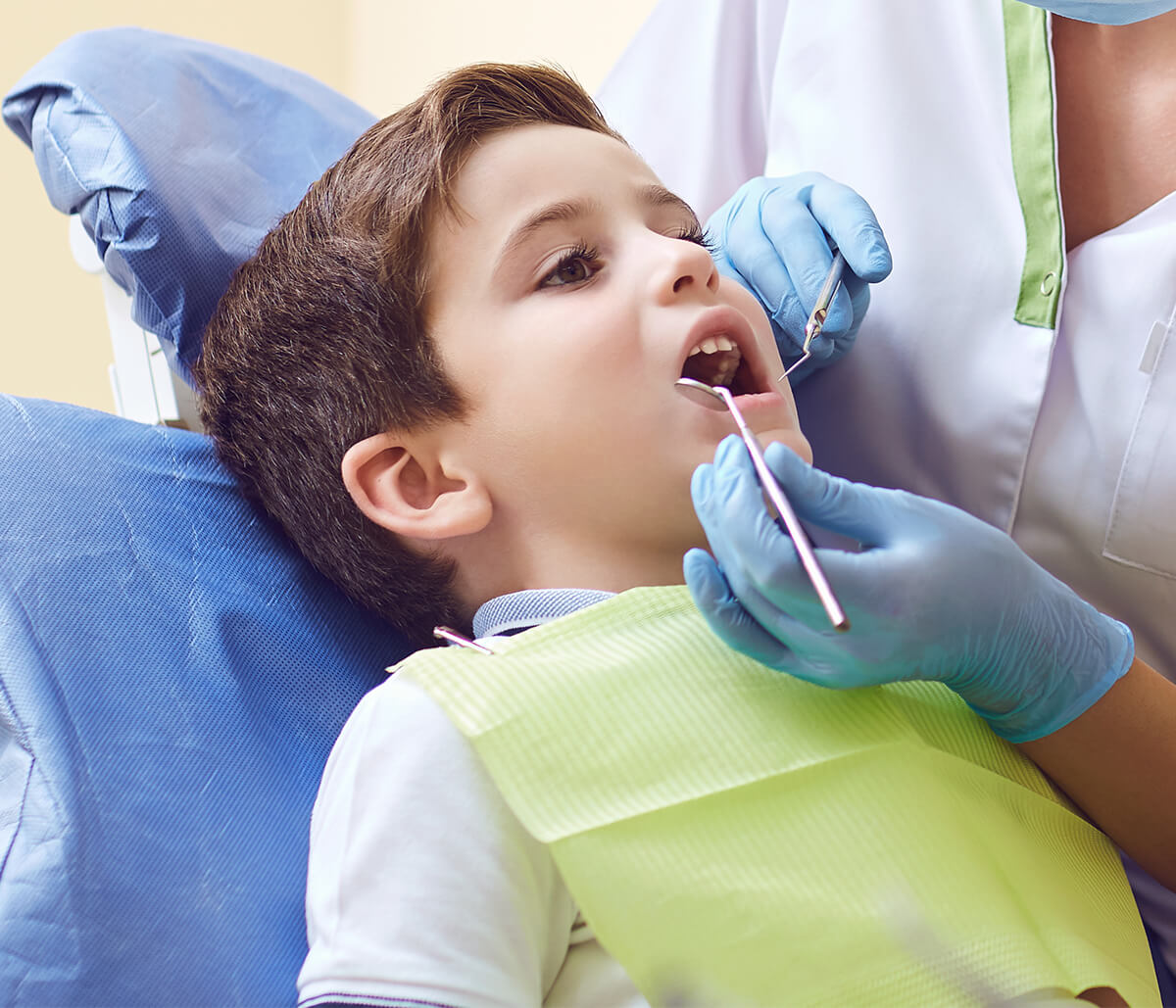Pediatric Dentistry in Alpharetta, GA

Conscientious oral hygiene is important at all stages of life. A mistake that parents do not want to make is to assume baby teeth are somehow less valuable than adult teeth. When oral health is carefully attended to from an early age, the child’s smile is better preserved for a lifetime.
Baby teeth serve an important role
The teeth that make their way into and out of the smile during childhood are vital to the development of the jaw. Primary teeth guide the growth of permanent teeth and hold space in the jaw as it grows to accommodate larger permanent teeth. These teeth develop just below the baby teeth, providing the pressure that naturally leads to the resorption of the tooth roots and the baby teeth falling out.
The most obvious role of baby teeth is to aid in biting and chewing food. Teeth are essential to speech, as well. These tasks are solely achieved by baby teeth for about six years. It is not until after the age of twelve or so that the smile is filled with permanent teeth. Until this time, it is important to keep all of the primary teeth in their healthiest condition.
Your child’s first teeth
Baby teeth start to erupt from the gums between six to nine months of age. In some infants, growth may begin as early as three months. In others, baby teeth are not seen until about one year of age. The first teeth to erupt are typically the two lower teeth at the front of the mouth. The next two to grow in are usually the top two front teeth. Following the front teeth are the first molars and then the eyeteeth, or canines. The growth of new teeth can be uncomfortable for many babies. Our friendly dental team is happy to discuss with parents ways they can reduce teething pain.
New teeth, along with gum tissue, can be cleaned gently with a moist, soft cloth. A daily brushing routine can begin around the age of two, when more teeth are present. The first toothbrush should be small and should have soft bristles. Only a very small dab of toothpaste is needed at this age.
Children lack the necessary motor skills to brush effectively until about the age of eight! Until this time, they will require direct assistance from a parent.
Seeing the dentist
The recommendation of the American Academy of Pediatric Dentistry is that early dental care begins by a child’s first birthday. With this early start, we can guide parents in the proper techniques for oral hygiene. During dental visits in our comfortable dental office, the child’s mouth and jaws are assessed for development and the teeth are evaluated for cavities and other problems.
Tooth decay can affect infants and young children in a number of ways. The development and progression of early childhood caries may be very quick, traveling from hard enamel to soft dentin in about six months.
In our office, we focus on making dental visits comfortable and positive for children of all ages, striving to create healthy attitudes towards oral hygiene and routine dental care.
Preventive and restorative care for children
We are happy to offer numerous treatments designed to prevent tooth decay and repair damaged teeth when necessary. Our patients may benefit from treatments such as:
- Topical Fluoride. Experts agree that fluoride treatments provide some of the best protection against early decay. Only a small amount of fluoride is present in toothpaste and drinking water. By applying concentrated fluoride directly to a child’s teeth, we achieve the maximum level of protection against cavities.
- Dental sealants. Sealant treatment is recommended for the protection of molars, which have deep grooves on the chewing surfaces that may trap debris and bacteria. Applied in liquid form, resin sealant material quickly hardens into a coating that seals the tooth and prevents bacteria from accumulating in these grooves. Dental sealants treatment is one painless treatment that can last for years.
- Tooth bonding. Children who experience minor fractures or chips in front teeth can have a mixture of ceramic glass and plastic applied to repair damage. Resin material is colored to match natural enamel. Appropriate for both, primary and permanent teeth, bonding lasts many years.
- Root canal therapy. Many adults have required root canal therapy to repair severe damage from decay. Cavities in young children are no different. They may lead to infection within the pulp chamber, which can only be eliminated through a root canal procedure. Because baby teeth guide the development of permanent teeth, treating damage as necessary is very important. Premature tooth loss due to infection can lead to a bad bite, or malocclusion that must be treated with orthodontic care.
Orthodontic assessment
Evidence of malocclusion can typically be identified by the age of seven. By assessing the development of teeth and the jaw during routine checkups, your dentist can detect the need for interceptive orthodontic treatment at a time when the proper growth of the jaw can be encouraged. Early orthodontic treatment can simplify or even eliminate the need for more extensive orthodontic care later on, which is just one reason professional orthodontic assessment is so valuable during the developmental years.
Sports and oral health
Children who participate in physical activities gain a number of benefits. They are also at risk for tooth damage. We encourage our patients to obtain a mouthguard made specifically for his or her teeth. The American Dental Association reports that dental harm is 60 times more likely in athletes who do not wear this type of protective device. We make mouthguards using a model of a patient’s teeth, leading to maximum protection compared to a store-bought mouthguard. When a custom appliance can save your child the pain and suffering of a dental injury – and save you the cost of restorative care – the investment into protection is clearly worth it.
At the Atlanta Center for Dental Health, we work together with our patients for healthy bodies and beautiful smiles. Contact our office near Alpharetta, Roswell, Johns Creek, Cumming, and Milton today.


